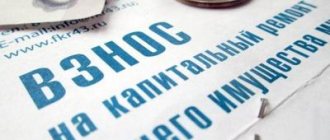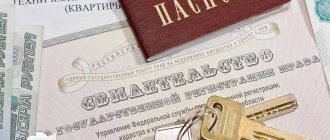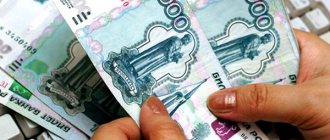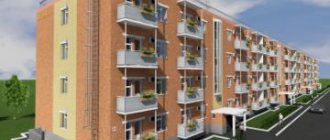Individuals who own residential premises - apartments, dachas, houses, as well as non-residential real estate (for example, a garage) - are payers of property tax. Payment of this tax is made on the basis of a receipt with a calculation, which inspectors of the Federal Tax Service send to the taxpayers' registration addresses at the end of the year. The calculation itself is made on the basis of the provisions of the Tax Code and acts of regional legislation. However, the law may also provide for property tax benefits for certain categories of citizens.
Tax benefits for the property of individuals under the Tax Code of the Russian Federation
The Tax Code offers property tax benefits to pensioners, disabled people, military personnel, family members of military personnel who have lost their breadwinner, heroes of the Soviet Union and the Russian Federation, as well as a number of other categories of payers. A complete list of those who are exempt from paying property tax for individuals at the federal level is presented in paragraph 1 of Article 407 of the Code.
Such citizens may not pay property tax on one object of each type out of all those that they own. In practice, this means that if a benefit recipient owns, for example, several apartments, then the exemption from personal property tax applies to only one of them. And vice versa, if we are talking about different types of real estate, then an individual can take advantage of two or more benefits at once: for example, pensioners can be exempt from paying property tax on an apartment and a dacha.
The right to a benefit is certified by a special application, which the taxpayer must submit to the Federal Tax Service before November 1 of the year in which the claimed benefit begins to be applied for the first time. There will be no need to duplicate this application in the future. Documents confirming your right to tax benefits can be attached to your initial application. However, this is only a right and not an obligation of an individual, although such documents will certainly make the task of controllers easier. The latter, even in the absence of documents proving the right to benefits, are obliged to independently request all the necessary information based on the information provided in the application of the potential beneficiary. Organizations, bodies and officials with the necessary data are involved in this.
Fundamental point: the property subject to the benefit should not be used as part of business activities. Simply put, if the apartment is rented out, then the benefit is not entitled to it.
And finally, two specific tax benefits for the property of individuals, which do not depend on the status of the taxpayer himself, but are rather related to the specifics of the object. Real estate objects such as studios, workshops, ateliers, in short, specially equipped premises in which their owners are engaged in professional creative activities, are not subject to tax. And secondly: various outbuildings up to 50 square meters located on land plots intended for farming, gardening or truck farming, or individual housing construction are not subject to property tax.
Federal benefits for personal property tax
| Categories of beneficiaries | Comments | Base |
| – Heroes of the Soviet Union; – Heroes of the Russian Federation; – Persons awarded the Order of Glory of all three degrees | To receive the benefit, present a book of a Hero of the Soviet Union or the Russian Federation, an order book | Subp. 1 clause 1 art. 407 Tax Code of the Russian Federation |
| Disabled people of groups I and II | To receive benefits, provide a certificate of disability | Subp. 2 p. 1 art. 407 Tax Code of the Russian Federation |
| Disabled since childhood | To receive benefits, provide a certificate of disability | Subp. 3 p. 1 art. 407 Tax Code of the Russian Federation |
| – Participants in the civil war; – Participants of the Great Patriotic War; – Participants in other military operations to defend the USSR; – Combat veterans | A participant in the Civil War, the Great Patriotic War and a combat veteran are provided with benefits without any restrictions. A participant in other military operations to defend the USSR is granted a benefit only if he was:
To receive the benefit, submit:
| Subp. 4 paragraphs 1 art. 407 Tax Code of the Russian Federation |
| – Persons of civilian personnel of the Soviet Army, Navy; – Employees of internal affairs bodies and state security during the Great Patriotic War; – Persons who were in cities during the Great Patriotic War, participation in the defense of which is counted towards length of service for the purpose of granting a pension on preferential terms | The benefit is provided to civilian members of the army and employees of these departments if they held regular positions in military units, headquarters and institutions that were part of the active army during the Great Patriotic War To receive a benefit, provide a certificate of participation in the Great Patriotic War or a certificate of entitlement to a benefit | Subp. 5 p. 1 art. 407 Tax Code of the Russian Federation |
| Citizens (including children of citizens under the age of 18) exposed to radiation due to: – accidents at the Chernobyl nuclear power plant; – the accident in 1957 at the Mayak production association and the discharge of radioactive waste into the Techa River; – nuclear tests at the Semipalatinsk test site | The benefit is provided to citizens (including their children under 18 years of age) exposed to radiation as a result of the disaster at the Chernobyl nuclear power plant In particular, the benefit is provided to the following categories of citizens when they submit the relevant documents:
- documents confirming the age of the children and relationship with these citizens (birth certificate, passport); — documents confirming the classification of one of the parents as citizens exposed to radiation as a result of the accident at the Chernobyl nuclear power plant. Such clarifications are contained in the letter of the Ministry of Finance of Russia dated November 6, 2009 No. 03-05-06-01/297 The benefit is provided to citizens exposed to radiation as a result of the accident in 1957 at the Mayak production association and the discharge of radioactive waste into the Techa River, upon presentation of a uniform certificate (Law of November 26, 1998 No. 175-FZ). The benefit is provided to citizens (including their children under the age of 18) who were exposed to radiation as a result of nuclear tests at the Semipalatinsk test site, upon submission of the appropriate documents (Law of January 10, 2002 No. 2-FZ). | Subp. 6 clause 1 art. 407 Tax Code of the Russian Federation |
| – Military personnel; – Persons discharged from military service upon reaching the age limit for military service, health conditions or in connection with organizational and staffing measures | Military personnel include persons performing military service under a contract or conscription (Article 2 of the Law of May 27, 1998 No. 76-FZ). Military service is an independent type of service (on a par with state civil and law enforcement) (Clause 1, Article 2 of Law No. 58-FZ of May 27, 2003). Therefore, state civil servants and law enforcement officers cannot take advantage of property tax benefits. In particular, employees of the penal system (letter of the Ministry of Finance of Russia dated April 14, 2008 No. 03-05-06-01/09) Persons discharged from military service receive a benefit if their total duration of service is 20 years or more. Moreover, such citizens are paid monetary compensation in the amount of the property tax actually paid (Clause 7, Article 23 of the Law of May 27, 1998 No. 76-FZ). Compensation is paid when the pension is issued. To do this you need to submit:
To receive the benefit, provide an identification card from a military unit or a certificate that can be issued by any military institution:
The certificate provided to military personnel must indicate the personal number, assigned military rank and military position (letter of the Ministry of Finance of Russia dated March 14, 2008 No. 18-12/4/023934). | Subp. 7 clause 1 art. 407 Tax Code of the Russian Federation |
| Citizens who were directly involved in special risk units: – in testing nuclear and thermonuclear weapons; – in the elimination of accidents of nuclear installations at weapons and military facilities | Such citizens include military personnel, civilian personnel of various military formations, employees of internal affairs bodies who were direct participants in:
The criteria for direct human participation in these events are established by Decree of the Government of the Russian Federation of December 11, 1992 No. 958 Military personnel who were part of the personnel of individual nuclear charge assembly units are also entitled to the benefit. To receive the benefit, provide a certificate issued by the Committee of Veterans of Special Risk Units of Russia based on the conclusion of a medical and social expert commission. The procedure and conditions for issuing such certificates were approved by Order of the Russian Ministry of Defense dated June 9, 2008 No. 321. | Subp. 8 clause 1 art. 407 Tax Code of the Russian Federation |
| – Family members of military personnel who have lost their breadwinner; – Parents and spouses of military personnel and government employees who died in the line of duty | Civil servants, in particular, include:
Spouses of government employees killed in the line of duty may benefit until they remarry. To receive benefits in the event of the loss of a breadwinner or the death of a military personnel, provide one of the documents:
To receive benefits in the event of the death of a civil servant while performing his duties, provide a certificate of death of the civil servant. | Subp. 9 and 13 clause 1 art. 407 Tax Code of the Russian Federation |
| – Pensioners; – Men 60 years of age and older, and women 55 years of age and older, who are paid monthly maintenance for life | Pensioners are entitled to benefits regardless of:
To receive benefits, provide a pension certificate, a document confirming the assignment of lifelong allowance. | Subp. 10 p. 1 art. 407 Tax Code of the Russian Federation |
| Citizens who performed international duty in Afghanistan and other countries | Those dismissed from military service or those called up for military training can take advantage of the benefit. To receive the benefit, provide the following documents:
The legislation does not explain the concept of “international debt”. According to the Russian Ministry of Finance, this category involves the fulfillment of any international obligations. That is, only those military personnel who in one way or another participated in military operations on the territory of other countries have the right to benefits on this basis. Consequently, persons who served in the Chechen Republic and other territories of the North Caucasus (i.e., in Russia) are not provided with benefits in accordance with federal legislation. At the same time, since the property tax for individuals is a local tax, local governments can establish additional benefits for it (Article 15, 399 of the Tax Code of the Russian Federation). To find out about this, contact the representative body of the relevant municipality. This conclusion is confirmed by letters from the Ministry of Finance of Russia dated August 27, 2009 No. 03-05-06-01/124, dated December 27, 2007 No. 03-05-07-02/114, dated December 26, 2006 No. 03-06 -01-02/55 (sent by the Federal Tax Service of Russia to the subordinate inspectorates by letter dated January 18, 2007 No. ШТ-6-21/21). | Subp. 11 clause 1 art. 407 Tax Code of the Russian Federation |
| Citizens who received or suffered radiation sickness or became disabled as a result of tests, exercises and other work related to any types of nuclear installations, including nuclear weapons and space technology | Provide proof of entitlement to benefits | Subp. 12 clause 1 art. 407 Tax Code of the Russian Federation |
| Citizens who are engaged in professional creative activities | The benefit applies to:
The benefit is provided only for the period of such use. To receive the benefit, provide a certificate of permission to use the residential premises as a workshop, studio, etc. | Subp. 14 clause 1 art. 407 Tax Code of the Russian Federation |
| Any citizens | The benefit applies to commercial buildings or structures, the area of each of which is not more than 50 square meters. m. When they are located on land plots provided for personal subsidiary plots, dacha farming, vegetable gardening, horticulture or individual housing construction. To receive the benefit, provide a BTI certificate and a document confirming the type of permitted use of the land. | Subp. 14 clause 1 art. 407 Tax Code of the Russian Federation |
Benefits are not provided for all property (clauses 2 and 5 of Article 407 of the Tax Code of the Russian Federation). For more information about this, see Who and in what cases must pay property tax for individuals.
The benefit has been provided since 2006 in accordance with the amendments introduced by the Law of April 5, 2009 No. 45-FZ, which applies to legal relations from January 1, 2006 (clause 2 of Article 2 of the Law of April 5, 2009 No. 45 -FZ).
Local benefits for personal property tax
In addition to the above cases where property tax benefits are provided at the federal level, there are options for local benefits established by regional law. Moreover, sometimes local legislative acts clarify the situations of providing benefits prescribed in the Tax Code, and sometimes they are a kind of addition.
For example, Moscow City Law No. 51 of November 19, 2014 “On the property tax of individuals” provides that beneficiaries from the above-mentioned paragraph 1 of Article 407 of the Tax Code have the right to zero property tax on a parking space or garage with an area of up to 25 square meters.
The St. Petersburg Law on Property Tax (Law of St. Petersburg dated November 26, 2014 No. 643-109) provides benefits to children without parental care and orphans, including adults. It is valid during their stay in a boarding school or other similar institution, as well as during their service in the Russian army.
A complete list of benefits, as well as local property tax laws, can be found ]]>on the Federal Tax Service website]]>. On it, in a convenient form, you can familiarize yourself with regional legislation relating to both exemptions from property taxes for individuals and benefits for property taxes for organizations.
What property are taxed for?
In order to understand whether a person can count on a personal property tax benefit, it is necessary to know which objects are subject to taxation. Article 401 of the Tax Code determines that this category includes the following property objects:
- houses located in the private sector;
- buildings that form complexes of buildings;
- apartments in households;
- garages or parking lots;
- rooms in dormitories, houses, communal type;
- non-residential buildings under construction.
IMPORTANT! If an applicant owns several buildings by right of ownership, he can only claim a property tax benefit for one property. Contributions payable on the remaining property must be made in full.
Tax benefits for corporate property tax
Not only individuals, but also organizations can take advantage of the right to property tax benefits. Of course, for legal entities there is a different procedure for providing benefits, but the general principle is somewhat similar: some benefits are provided based on the status of the taxpayer organization itself, while others apply to property of a certain type.
Thus, according to Article 381 of the Tax Code, for example, organizations of the penal system, bar associations, law offices and legal consultations, religious organizations, and all-Russian organizations of disabled people do not pay property tax.
Of course, in the case of organizations, it is necessary to focus not only on federal, but also on regional legislation. It is also important to remember the need to file a property tax return: regardless of whether a legal entity falls under the exemption or not, it is obliged to report to the Federal Tax Service in any case.
The benefits applied are indicated separately in the declaration using special codes. Their full list is given in Appendix No. 6 to the Order of the Federal Tax Service of Russia dated March 31, 2020 No. ММВ-7-21 / [email protected] , which approved the current form of the declaration for the property tax of organizations. Thus, code 2010257 is a property tax benefit in respect of movable objects registered as fixed assets from January 1, 2013, unless such fixed assets were received as a result of the reorganization or liquidation of another organization or from an interdependent person.
Code 2010333 corresponds to a benefit extended to the property of state research centers. Codes 2012400 and 2012500 are provided for cases established by the laws of constituent entities of the Russian Federation of lowering the tax rate for a certain category of taxpayers and reducing the amount of tax payable to the budget, respectively.
Individuals must pay real estate and land tax by November 15
“Just a few years ago there were a little more than 100,000 of them. That is, in about five years there was an increase of approximately twofold,” noted Michal Rassolko. – By the way, if a person has two residential premises in apartment buildings, it is his right to choose which of them to pay tax on. To do this, you need to contact the tax authority.
This year a new edition of the Tax Code came into force. In general, neither rates nor benefits have changed. Innovations affected buildings and land plots that were used for other purposes. The right of local councils to increase rates on ineffective or unused real estate by up to 10 times has been abolished. The tenfold increasing coefficient has also been abolished in relation to land plots that were provided for temporary use and were not returned in a timely manner or were occupied without permission. Also, for the regional and Minsk city Councils of Deputies, limits have been established for increasing the rates of real estate and land tax. For 2020, the maximum size is 2.5 times, and from 2020 onwards – no more than 2 times. Experts note: a decrease in coefficients will also be reflected in the amount of taxes that will be presented for payment.
We recommend reading: What payments are due for a third child in 2020
When to pay property tax?
No later than December 1, 2020, citizens are required to pay taxes for 2020, including property tax for individuals. Many have already received a paper or electronic (through the “taxpayer’s personal account for individuals”) notification from the Federal Tax Service, which contains information about all taxable objects registered in the name of a citizen. In 28 regions of the Russian Federation, this tax is calculated based on the cadastral value of the property. By 2020, all regions of the Russian Federation must switch to this form of payment.
It is important to know that if the tax calculated for 2020 is less than 100 rubles, a notification is not sent to the taxpayer and the obligation to pay tax does not arise.
Types of property tax benefits
In accordance with current legislation, senior citizens who are pensioners are exempt from paying personal property taxes in full.
As for property such as land, senior citizens who own a plot of land with an area of no more than 6 acres may not pay the corresponding fee.
Important! In a number of regions of the Russian Federation, there are additional benefits for paying land tax, which means that the fee can be waived for plots of more than 6 acres.
Property tax benefits have been changed in Moscow
In practice, what happens is that large organizations, receiving benefits, simply rent out space. In this regard, changes have been made according to which the preferential area should not be rented out. In addition, the benefit will be calculated based on 50 sq. meters of area per disabled employee. The implementation of the amendment will make it possible to attract additional funds to the Moscow budget in the amount of 1 billion rubles, says Vladimir Efimov, head of the Department of Economic Policy and Development of the City of Moscow.
In addition, the law adjusts the property tax benefit for buildings and premises occupied by plant management, and also establishes benefits for private educational organizations if they have contributed significant funds to the construction or reconstruction of buildings. Property taxes for them will be reduced by 10 times.
Tax deductions for personal property
In addition to the opportunity not to pay fees for some property, all citizens can take advantage of deductions. However, owners who enjoy tax privileges can only receive a deduction for property to which the benefit does not apply. For example, a pensioner can receive a tax credit for a private house if he already uses the tax credit for an apartment. For taxes calculated based on cadastral value, this value is reduced:
- for 20 sq.m. for apartments and houses;
- for 10 sq.m. for rooms and parts of the apartment;
- for 50 sq.m. for private houses, but taking into account all buildings on the land plot;
- one million rubles for a real estate complex;
- for 5 sq.m. for an apartment and seven for a house for each child, if there are more than three in the living space.
Any citizen who owns real estate can receive a tax deduction when paying a fee. To do this, he needs to fill out an application confirming the right to receive a tax deduction. You can find a sample document on the official website of the Federal Tax Service: https://www.nalog.ru.
Tax benefits for property tax (real estate) in Moscow in 2020
Important! Persons for whom the law establishes benefits for paying property tax are exempt from paying it, but only for one object (room, apartment/house, garage/parking space). Tax is required to be paid on second and subsequent property.
In order to reduce the tax burden, the state provides relief and preferences for certain categories of citizens. Cities of federal significance have the right to establish other criteria and deductions on their territory.
We recommend reading: Survivor's Benefit 2020








